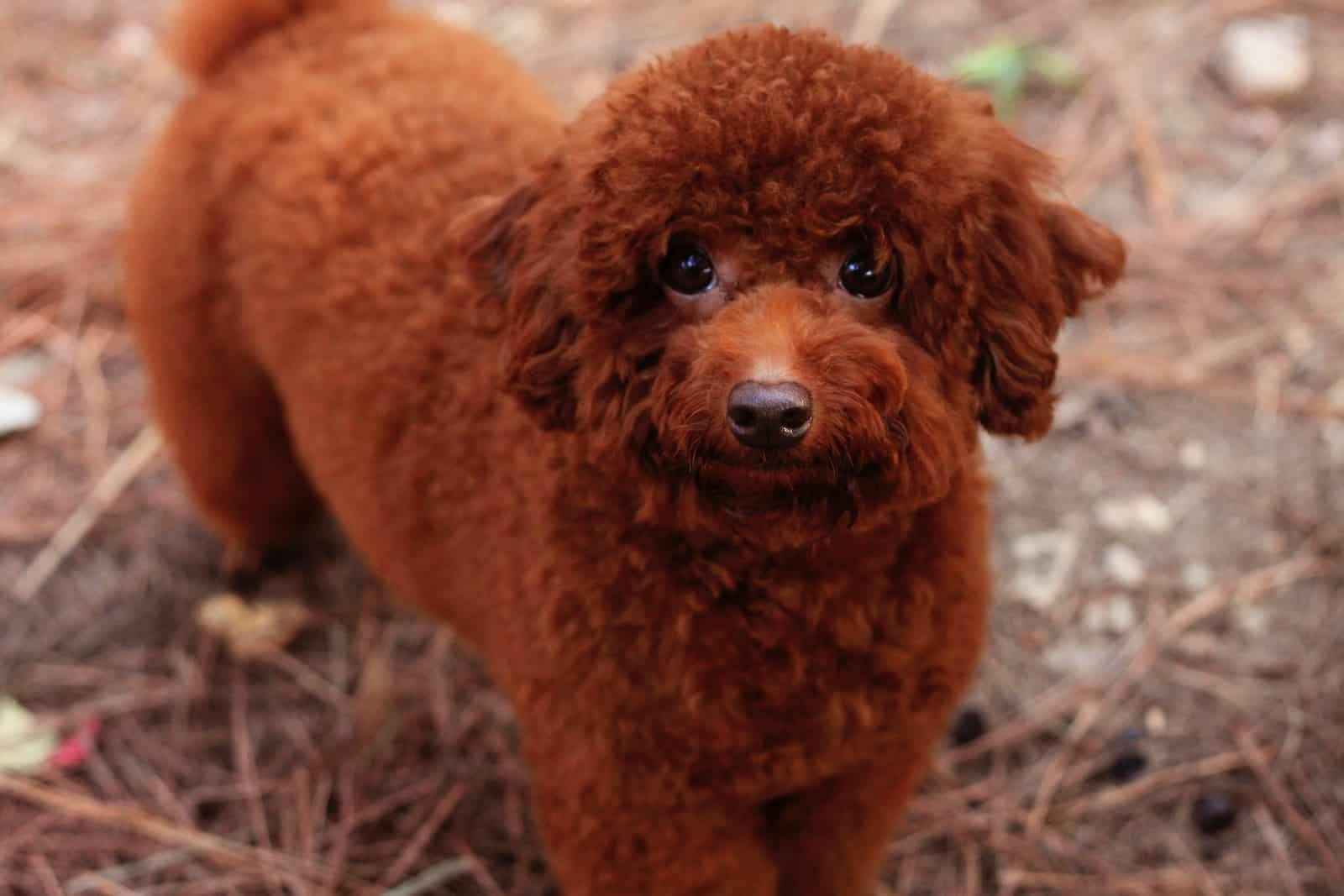
Miniature Poodles is one of the most popular dog breeds known for their intelligence, loyalty and good-natured personalities. But what does it take for proper breeding of these miniature pooches? From understanding the gene pool to providing a safe living environment and regular health checks, breeding Miniature Poodles is no small feat. From puppy mills to health concerns, breeding Miniature Poodles has become an increasingly complex process. So if you’ve ever been curious about how to safely and responsibly breed Miniature Poodles, this guide will show you how.
From Our Experience: As poodle enthusiasts who have worked with hundreds of poodle owners and rescue organizations over the years, we’ve gathered real-world insights that go beyond textbook knowledge. The information in this article reflects both professional expertise and hands-on experience with poodles of all sizes and temperaments.
What are Miniature Poodles?
Miniature Poodles are a type of poodle breed that have been bred to be smaller than their standard counterparts. They typically stand 14-15 inches tall and weigh between 10-15 pounds, making them one of the toy breeds. Miniature Poodles come in a variety of colors ranging from white, black, and apricot. They are also known for their curly coats and active personalities. Although they may look like small versions of standard poodles, they require daily exercise and mental stimulation to stay happy and healthy. Miniature Poodles usually have a life expectancy of 12-14 years with proper care.
Miniature Poodles can make great family pets because of their intelligence, loyalty, and affectionate nature towards people. They can also be good for people with allergies since they don’t shed as much hair or dander as other breeds. However, it is important to get a health certificate before bringing home a new puppy to ensure that it is free of any potential genetic health concerns, such as hip dysplasia or elbow dysplasia. Reputable breeders will also perform regular health checks on their breeding programs in order to ensure that the puppies are born healthy with no vital organs affected by any conditions or diseases.
Miniature Poodles are a wonderful breed for those looking for an intelligent and loyal companion. They will bring a lot of joy and laughter into any home! But don’t just take our word for it – find out why Miniature Poodles have become so popular in the next section!
Popularity of Miniature Poodles
Miniature Poodles have become increasingly popular in recent years because of their small size, intelligence, and affectionate nature. They make the perfect pet for those living in apartments or smaller living spaces since they don’t require as much exercise as other breeds. Miniature Poodles are also known for their hypoallergenic coats that shed very little dander and hair, which makes them great for people with allergies.
Besides being low maintenance pets, Miniature Poodles are also incredibly intelligent and easy to train. They enjoy learning new tricks and can easily learn how to perform basic obedience commands such as sit, stay, come, and lay down. They have an excellent memory, so they’ll remember the things you’ve taught them quickly.
Finally, Miniature Poodles have a high activity level despite their small size, which makes them ideal companions for active families or individuals who love spending time outdoors. They can keep up with children during playtime or go on long walks with their owners every day.
Overall, it is no wonder why Miniature Poodles have become one of the most popular breeds around – they offer all the benefits of larger breeds but in a much more manageable package!
Characteristics of the Breed
Miniature Poodles are a small breed of dogs that are usually between 8 and 14 inches tall and can weigh anywhere from 6 to 15 pounds. They have a distinctive curly coat that comes in many colors, such as white, black, silver, apricot, sable and blue. The breed is known for being intelligent and affectionate and is also hypoallergenic, which makes them great for people with allergies.
The Miniature Poodle has a life expectancy of around 12 to 15 years when properly cared for. They require daily exercise in order to stay healthy and happy, so it is important to make sure they get adequate exercise regularly. It is important to look for reputable breeders who test their breeding stock for health conditions like hip dysplasia, elbow dysplasia, or adrenal gland issues.
When looking for a healthy Miniature Poodle pup, it is important to request a health certificate from the breeder as well as inquire about their breeding programs. As with any breed of dog, it is important to do your research before buying or adopting a puppy in order to ensure you get the best possible pet.
Mixing Breeds
Mixing breeds is a popular practice among pet owners today and while it may produce attractive and unique looking dogs, there are important considerations to consider. When two different breeds of dog are bred together, the puppies will probably inherit traits from both parents, but it is impossible to predict which traits will be passed down. This means that the puppies could develop many health issues or behavioral problems because of the genetic mix. Since these mixes are not recognized as official breeds by any kennel clubs, it’s difficult to find a qualified breeder with experience in breeding such mixes.
It is also important to remember that all dog breeds have their own unique needs and characteristics, so when mixing two different breeds together, you must be prepared for a puppy that may require special attention and care. Researching both parents breeds thoroughly can help determine what kind of temperament and activity level you should expect from your new pup. For those interested in owning a mixed breed dog, doing proper research before deciding is essential for finding a healthy and happy pet.
No matter what kind of pup you’re looking for, a mixed breed can be a superb choice if you have done your research and are prepared to give it the care it needs. But before you commit to owning a mixed breed dog, make sure you know what you are getting into by safely breeding and researching both parent breeds thoroughly. Next, we’ll explore some tips for finding the perfect puppy!
Safely Breeding
Safely breeding any type of dog is a multi-step process that involves both research and responsibility. First, the breeder should research the breed standards for both parent breeds to ensure the puppies will be healthy. This includes researching health conditions that can be passed down genetically, such as hip dysplasia or elbow dysplasia. It’s also important to consider the life expectancy and daily exercise requirements of both breeds to ensure they are compatible.
The breeder should also purchase a health certificate from a reputable veterinarian, which verifies that all vital organs are in good working order before breeding. Finally, it’s important to make sure both parents have been tested for adrenal gland issues, as this can affect a puppy’s future reproductive abilities. With these steps taken into consideration your breeding program will produce happy and healthy puppies!
Health Problems
Miniature Poodles are a popular breed, but they can be prone to certain health problems. Common issues include cataracts, progressive retinal atrophy (PRA) which can cause blindness, IMHA (Immune Mediated Hemolytic Anemia), heart disease, diabetes, epilepsy, runny eyes, ear infections and skin allergies. Brown poodles may also prematurely gray. To ensure your puppies will be healthy, it’s important to research the breed standards of both parent breeds and purchase a health certificate from a reputable veterinarian before breeding. It’s also wise to test both parents for adrenal gland issues, which may affect the puppy’s future reproductive abilities. By taking these steps, you’ll have peace of mind knowing your breeding program will produce happy and healthy miniature poodle puppies!
Puppy Mills – How to Spot One
Puppy mills are commercial breeding facilities that put profits before the health and wellbeing of their animals. These establishments often house large populations of puppies in cramped, unsanitary conditions with little to no access to veterinary care or proper nutrition. In order to identify a puppy mill, there are several telltale signs to look for. For starters, if a breeder has more than one breed of puppy available, this is usually a red flag. If the puppies have limited exposure to people and other animals and appear socially withdrawn or fearful, this could be a sign that they are being raised in an environment lacking in socialization and stimulation. Finally, if the seller does not require potential buyers to provide proof of spaying/neutering or other forms of responsible pet ownership, it’s likely that their puppies come from a puppy mill. If you suspect you may deal with a puppy mill, it’s best to walk away and find another source for your new pet.
The puppies that come from puppy mills are the victims of an industry that puts profits over the well-being of animals. It’s up to us to identify and avoid these establishments in order to ensure these precious puppies have a chance at a happy life. Next, we will look at the living needs of puppies so you can get your new pet off on the right paw!
Living Needs
As a potential pet owner, it is important to take into consideration the living needs of your puppy. Miniature poodles require plenty of daily exercise and mental stimulation. Depending on their activity level, at least an hour or two of playtime each day is recommended. Besides physical exercise, it’s important to provide your pup with lots of socialization and mental stimulation as training, games, and interactive toys. As a breed that loves to learn, miniature poodles will thrive when provided with positive reinforcement-based obedience classes or agility courses.
Because they have a long life expectancy, these puppies should be fed a high-quality diet that is appropriate for their age and size. Regular veterinary visits are essential for detecting any health issues early on as well as keeping up with vaccinations and other preventative care measures. Finally, if you live in an apartment setting or don’t have access to a fenced-in yard for playtime sessions, your pup will also need frequent trips to the dog park or walks around the neighborhood so they can get out all that extra energy!
Breeding Frequency
When it comes to breeding Miniature Poodles, the recommended frequency is typically once a year. This allows female dogs to recover properly between litters and increases the likelihood of producing healthy puppies. As with any breed, careful consideration needs to be given when selecting a mate for your female dog. It is important to find a reputable breeder who can provide health certificates for both parents and ensure that they are healthy and free from genetic disorders like hip dysplasia or elbow dysplasia. Many breeders will perform tests on vital organs, such as the heart and adrenal gland, prior to breeding. By taking these extra steps, your pup’s offspring will be healthy and well-adjusted.
Living Conditions
The Miniature Poodle is a popular breed of dog renowned for its intelligence, loyalty and affection. They make the perfect pet for any home—big or small! With living conditions, these pups are adaptable and thrive in a variety of situations. They can live happily in apartments or houses with yards, as well as being comfortable outdoors when taken on regular walks or hikes. The important thing is that they receive enough exercise to keep them healthy and happy. They love to play and should have at least an hour of activity each day. Miniature Poodles need plenty of mental stimulation in order to thrive—this can come from interactive toys, training sessions or games with their owners. With the right environment and care, these precious pups will bring joy into any home for many years to come.
Health Concerns in Breeding Smaller Poodles
Health is a primary concern when breeding smaller poodles, such as the Miniature Poodle. As with any breed of dog, it is important to research the parents and ensure that they come from reputable breeders. This will help eliminate the chances of passing on any health conditions or genetic defects. Two common ailments that can affect the Miniature Poodle are hip dysplasia and elbow dysplasia. It is also important to check vital organs such as the heart, lungs, and adrenal gland for any signs of disease.
To ensure healthy puppies, responsible breeders must give buyers a health certificate for each pup. This document will include details about the pup’s parents and their breeding programs. A good breeder should also be willing to answer questions about their dogs’ activity levels, diet, and life expectancy. Those who carefully research and pay attention to detail can feel confident in selecting a healthy Miniature Poodle.
It’s important to research the health history of Miniature Poodles before bringing one home. With the right research and care, knowing that you have chosen a healthy pup! Now, let’s inspect some of the common health issues associated with this breed…
Common Health Issues with Breeds
Common health issues with breeds can range from genetic disorders to common illnesses and injuries. Miniature Poodles, for example, are prone to hip dysplasia and elbow dysplasia. It is important to research the parents of a puppy before bringing it home, as this will help eliminate the chances of passing on any health conditions or genetic defects. As with any breed of dog, it is essential to take your pup for regular check-ups at the vet in order to monitor their health. Owners should also know signs such as excessive scratching and licking, which could show a skin problem or food intolerance. Good nutrition and exercise are vital for your pup’s health, so give them a balanced diet and lots of activities.







